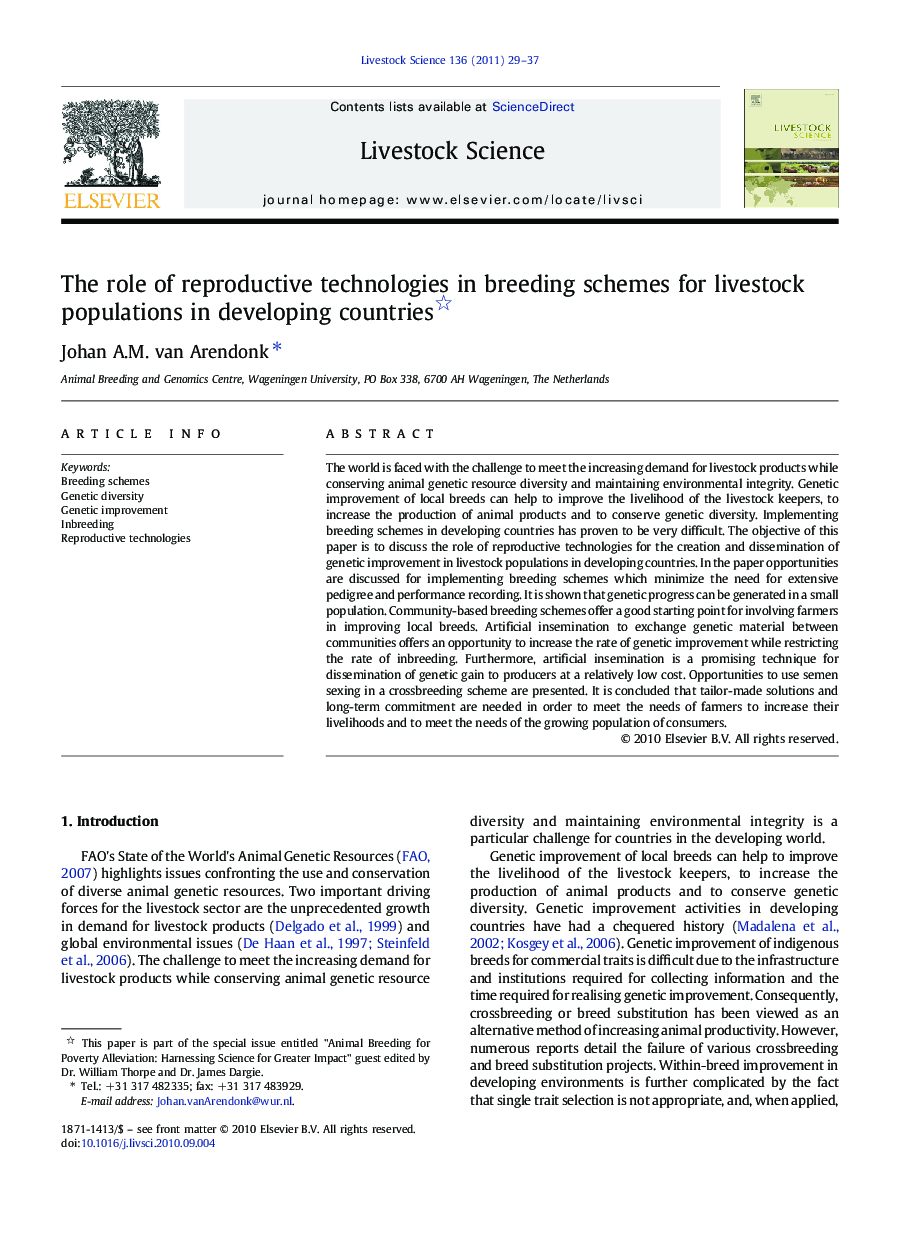| Article ID | Journal | Published Year | Pages | File Type |
|---|---|---|---|---|
| 2447519 | Livestock Science | 2011 | 9 Pages |
The world is faced with the challenge to meet the increasing demand for livestock products while conserving animal genetic resource diversity and maintaining environmental integrity. Genetic improvement of local breeds can help to improve the livelihood of the livestock keepers, to increase the production of animal products and to conserve genetic diversity. Implementing breeding schemes in developing countries has proven to be very difficult. The objective of this paper is to discuss the role of reproductive technologies for the creation and dissemination of genetic improvement in livestock populations in developing countries. In the paper opportunities are discussed for implementing breeding schemes which minimize the need for extensive pedigree and performance recording. It is shown that genetic progress can be generated in a small population. Community-based breeding schemes offer a good starting point for involving farmers in improving local breeds. Artificial insemination to exchange genetic material between communities offers an opportunity to increase the rate of genetic improvement while restricting the rate of inbreeding. Furthermore, artificial insemination is a promising technique for dissemination of genetic gain to producers at a relatively low cost. Opportunities to use semen sexing in a crossbreeding scheme are presented. It is concluded that tailor-made solutions and long-term commitment are needed in order to meet the needs of farmers to increase their livelihoods and to meet the needs of the growing population of consumers.
